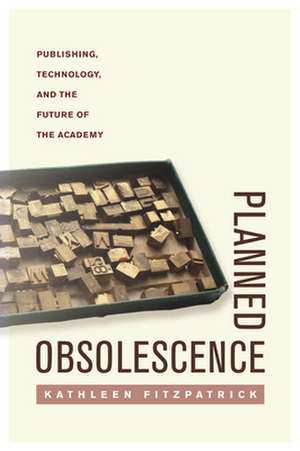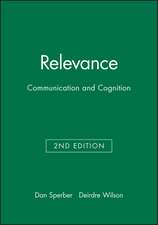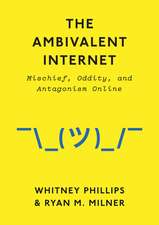Planned Obsolescence – Publishing, Technology, and the Future of the Academy
Autor Kathleen Fitzpatricken Limba Engleză Paperback – 31 oct 2011
Academic institutions are facing a crisis in scholarly publishing at multiple levels: presses are stressed as never before, library budgets are squeezed, faculty are having difficulty publishing their work, and promotion and tenure committees are facing a range of new ways of working without a clear sense of how to understand and evaluate them. Planned Obsolescence is both a provocation to think more broadly about the academy's future and an argument for reconceiving that future in more communally-oriented ways. Facing these issues head-on, Kathleen Fitzpatrick focuses on the technological changes--especially greater utilization of internet publication technologies, including digital archives, social networking tools, and multimedia--necessary to allow academic publishing to thrive into the future. But she goes further, insisting that the key issues that must be addressed are social and institutional in origin.
Springing from original research as well as Fitzpatrick's own hands-on experiments in new modes of scholarly communication through MediaCommons, the digital scholarly network she co-founded, Planned Obsolescence explores these aspects of scholarly work, as well as issues surrounding the preservation of digital scholarship and the place of publishing within the structure of the contemporary university. Written in an approachable style designed to bring administrators and scholars into a conversation, Planned Obsolescence explores both symptom and cure to ensure that scholarly communication will remain relevant in the digital future.
Check out the author's website here.
For more information on MediaCommons, click here. Listen to an interview with the author on The Critical Lede podcast here. Related Articles:
"Do 'the Risky Thing' in Digital Humanities" - Chronicle of Higher Education
"Academic Publishing and Zombies" - Inside Higher Ed
| Toate formatele și edițiile | Preț | Express |
|---|---|---|
| Paperback (1) | 228.21 lei 6-8 săpt. | |
| MI – New York University – 31 oct 2011 | 228.21 lei 6-8 săpt. | |
| Hardback (1) | 526.01 lei 6-8 săpt. | |
| MI – New York University – 31 oct 2011 | 526.01 lei 6-8 săpt. |
Preț: 228.21 lei
Nou
Puncte Express: 342
Preț estimativ în valută:
43.68€ • 47.46$ • 36.72£
43.68€ • 47.46$ • 36.72£
Carte tipărită la comandă
Livrare economică 21 aprilie-05 mai
Preluare comenzi: 021 569.72.76
Specificații
ISBN-13: 9780814727881
ISBN-10: 0814727883
Pagini: 256
Ilustrații: 16 b&w illustrations
Dimensiuni: 151 x 228 x 18 mm
Greutate: 0.42 kg
Editura: MI – New York University
ISBN-10: 0814727883
Pagini: 256
Ilustrații: 16 b&w illustrations
Dimensiuni: 151 x 228 x 18 mm
Greutate: 0.42 kg
Editura: MI – New York University
Notă biografică
Descriere
A provocative exploration of the new modes of scholarly communication
Recenzii
Planned Obsolescence is a wonderfully clear and honest assessment of the present state of academic publishing and possible future directions. The digital age offers us a chance to exit the ivory tower and engage in more meaningful collaborations with peers and a more inclusive dialogue with readers. Fitzpatrick's study is a must-read, not just for all of those directly involved - academics, publishers, university administrators, librarians - but also for anybody interested in the future of the humanities." Alessandra Tosi, Times Higher Education
"Kathleen Fitzpatrick is one of our most interesting, provocative, knowledgeable, and sane commentators on the future of rewriting, writing, publishing and the academy. Planned Obsolescence is a field guide to the future ways we do our research, communicate, teach, and learn together." Cathy Davidson, Duke University
"Kathleen Fitzpatrick is a pioneer of both the theory and practice of peer-to-peer scholarly publishing. This book is the best map yet to the difficult terrain where economies, technologies and cultures of academic communication meet. If there are to be paths to sustainable practices for intelligent life in academia, then we should all follow Fitzpatricks lead." McKenzie Wark, author of A Hacker Manifesto and Gamer Theory
"Fitzpatrick is well qualified to discuss alternate forms of publishing and unexpected futures for the academy...Chapters titled 'Peer Review,' 'Authorship,' 'Texts,' 'Preservation,' and 'The University' methodically dismantle arguments for the status quo, with sections debating accepted beliefs and practices such as the anonymous basis of peer review; recognizable, individual authorship; for-profit university presses; and the rejection of open access as a tenable scholarly publishing model." Henrietta Thornton-Verma, Library Journal
"[A] desire for pre-eminence, authority and disciplinary power is what blogs and the digital humanities stand against.The point is made concisely by Kathleen Fitzpatrick in her new book, Planned Obsolescence: Publishing, Technology, and the Future of the Academy." Stanely Fish, blogger for The New York Times
"Fitzpatrick's Planned Obsolescence its title a sardonic speculation on the future of the printed book considers how academic publishing might best resolve this challenging dilemma. As co-founder of the digital scholarly network MediaCommmons, Fitzpatrick who lectures in Media Studies at Pomona College in California is well placed to observe the development of digital culture in academia." The Los Angeles Review of Books , June 2012
"Kathleen Fitzpatrick is one of our most interesting, provocative, knowledgeable, and sane commentators on the future of rewriting, writing, publishing and the academy. Planned Obsolescence is a field guide to the future ways we do our research, communicate, teach, and learn together." Cathy Davidson, Duke University
"Kathleen Fitzpatrick is a pioneer of both the theory and practice of peer-to-peer scholarly publishing. This book is the best map yet to the difficult terrain where economies, technologies and cultures of academic communication meet. If there are to be paths to sustainable practices for intelligent life in academia, then we should all follow Fitzpatricks lead." McKenzie Wark, author of A Hacker Manifesto and Gamer Theory
"Fitzpatrick is well qualified to discuss alternate forms of publishing and unexpected futures for the academy...Chapters titled 'Peer Review,' 'Authorship,' 'Texts,' 'Preservation,' and 'The University' methodically dismantle arguments for the status quo, with sections debating accepted beliefs and practices such as the anonymous basis of peer review; recognizable, individual authorship; for-profit university presses; and the rejection of open access as a tenable scholarly publishing model." Henrietta Thornton-Verma, Library Journal
"[A] desire for pre-eminence, authority and disciplinary power is what blogs and the digital humanities stand against.The point is made concisely by Kathleen Fitzpatrick in her new book, Planned Obsolescence: Publishing, Technology, and the Future of the Academy." Stanely Fish, blogger for The New York Times
"Fitzpatrick's Planned Obsolescence its title a sardonic speculation on the future of the printed book considers how academic publishing might best resolve this challenging dilemma. As co-founder of the digital scholarly network MediaCommmons, Fitzpatrick who lectures in Media Studies at Pomona College in California is well placed to observe the development of digital culture in academia." The Los Angeles Review of Books , June 2012


















